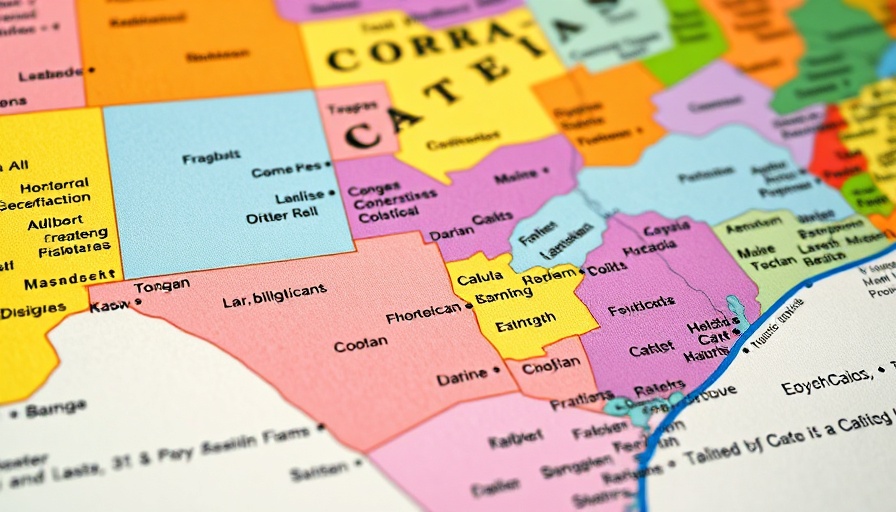
The Battle Over Redistricting: A Tricky Turn in Texas Politics
In an unexpected turn of events, Texas Democrats took a dramatic step by leaving the state, thus preventing the Texas House from voting on a GOP-friendly congressional map. The proposed redistricting plan, which would have favored Republican candidates by adding five more seats to their current 25 out of 38, was scheduled for a critical vote on Monday at 3 p.m. Ultimately, the absence of Democrats—necessary to achieve a quorum—halted the process, pushing essential discussions on notable issues to the back burner.
A Quorum Crisis: What Does It Mean?
A quorum, or the minimum number of members that must be present to conduct business, is locked at two-thirds in the 150-member Texas House. According to spokesperson Josh Rush Nisenson, at least 51 Democrats removed themselves from Texas, emphasizing their refusal to participate in what they deemed an unrepresentative and unfair redistricting process. Republican Governor Greg Abbott labeled this action a dereliction of duty, stating, "Texas House Democrats abandoned their duty to Texans" and vowed to hold them accountable. He even authorized the Texas Department of Public Safety to arrest those who had opted out of voting.
The Bigger Picture: Why This Matters
This situation not only highlights the ongoing tension between Democrats and Republicans in Texas but brings to light larger themes revolving around representation and electoral fairness. Redistricting is not merely a procedural task; it has substantial implications for political power balances within the state and nationwide. Misrepresentation in congressional mapping can infuse partisanship into electoral processes, which may lead to long-term consequences.
Flood Relief and Legislative Impasse
The impact of the quorum break extends beyond redistricting plans. Governor Abbott pointed out that critical legislation designed to aid flood victims in Texas has also been held hostage due to the absence of votes. Past disasters, including last month’s catastrophic floods that devastatingly left 136 people dead, have warranted immediate legislative action, including updating warning systems and facilitating relief measures. Democrats' departure from the state has complicated these essential discussions.
Looking Ahead: Future Predictions and Insights
Should Democrats continue to resist participating in the redistricting process, it may set the stage for similar actions in the future, leading to unstable governance. This prerequisite absence might encourage more strategic withdrawals when facing unfavorable legislation. As polarization grips politics, the Texan landscape will likely see an increase in these types of confrontations, emphasizing the importance of understanding the ongoing dynamics in state governance.
Counterarguments: Diverse Perspectives on Redistricting
While Democrats argue that the proposed congressional map is unfair, Republicans defend their tactics by asserting that redistricting is a standard and essential procedure necessary for reflecting population changes. Indeed, a balancing act exists where both parties seek to maintain—or expand—their power through legitimate means. How these differing viewpoints will coexist could define not just Texas's governance but influence political strategies at a national level.
Engaging Audiences: Local vs. National Perspectives
For Texas residents, this political tug-of-war is particularly relevant, as it affects immediate worries such as disaster relief and governance. Nationally, discussions of redistricting evoke conversations about democracy and representation, as seen in other states grappling with similar issues. It's vital for all citizens, regardless of political affiliation, to monitor such legislative processes and remain informed about how these developments may directly influence electoral outcomes.
As Texas continues to navigate its political landscape, residents should remain vigilant and engaged, fostering discourse around representation and policy decisions that truly serve the needs of their communities. More must be done to elevate public discourse surrounding these crucial legislative issues.
 Add Element
Add Element  Add Row
Add Row 



Write A Comment